Cleopatra (1963)
“A woman, too, must make the barren land fruitful. She must make life grow where there was no life. Just as the Mother Nile feeds and replenishes the Earth, I am the Nile.”
|
Synopsis: |
|
Genres, Themes, Actors, and Directors:
Review: Elizabeth Taylor was a notorious diva throughout the making of this film, which most definitely translates onto screen. To her credit, she puts forth a Cleopatra both hopelessly entitled and surprisingly sympathetic — albeit not without a healthy dose of campiness; my favorite unintentionally hilarious scenes include her infamous carpet-roll-out emergence, her “Mother Nile” speech (see quote above), and her appearance in countless over-the-top outfits and hairstyles. Other performances throughout the film — this was an all-star cast, for sure — are fine as well; despite not working from a coherent script, and/or having much of their scenes left on the cutting room floor, the characters seem reasonably well-formed — at least, enough to understand the general tenor of the complex, back-stabbing politics at play in this era. Speaking of politics, watching this film in 2017, one can’t help taking note of the portrayal of Caesar as a Trump-like dictator. When Caesar complains that he “must wish what needs commanding”, one of his senators asks him in horror, “Do you suggest that the Senate no longer deliberate the welfare of Rome? Do you suggest an end to the process of Roman Law?” — to which Caesar replies, “I must be the law!” without any hint of awareness that his request is unreasonable. When Caesar humble-brags by insisting, “I want no more meaningful privileges and considerations, no more honors designed to pacify me. I’d far rather have nothing — remain what I am at heart, a humble man, anxious only to serve.”, we once again hear eerie echoes of the current U.S. President (“I think I’m much more humble than you would understand,” Trump stated in all earnestness to Barbara Walters during an interview). Suffice it to say that this film remains an especially timely and potent reminder about the cyclical nature of humanity — including our group-like tendency to adore spectacle and ‘royalty’, the seemingly inescapable lust for power and domination, and the corrupt inner workings of love and politics. Note: Diehard fans will likely want to read producer Walter Wanger’s memoir My Life With Cleopatra: The Making of a Hollywood Classic. Redeeming Qualities and Moments:
Must See? Categories
Links: |
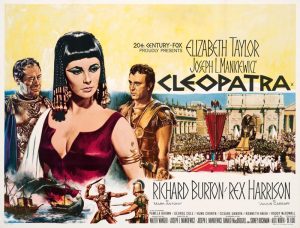
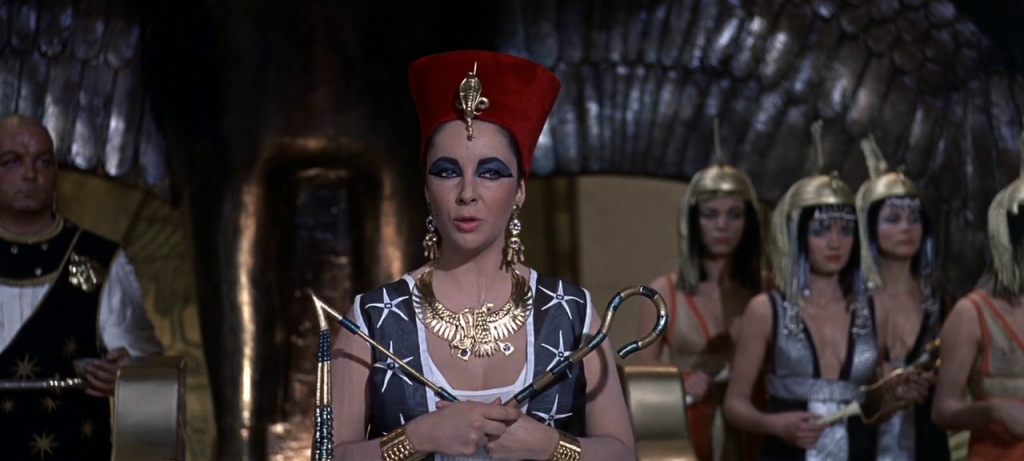
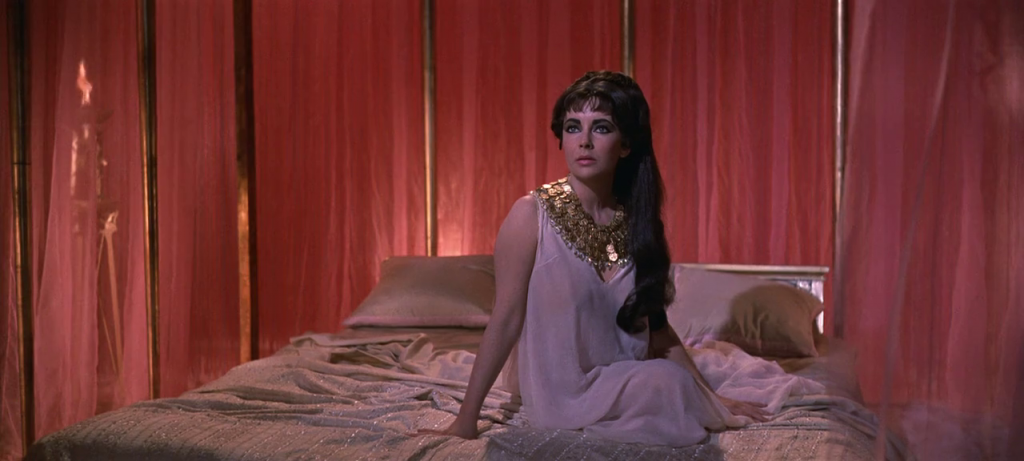
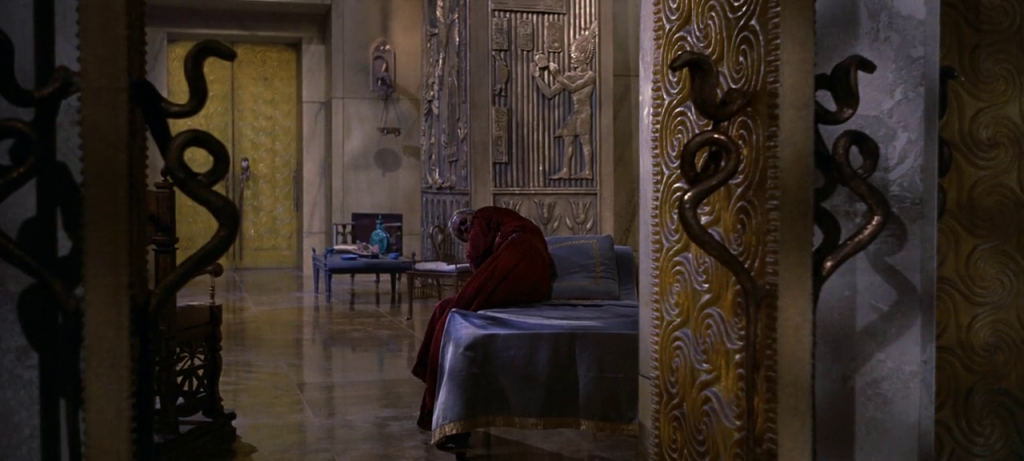
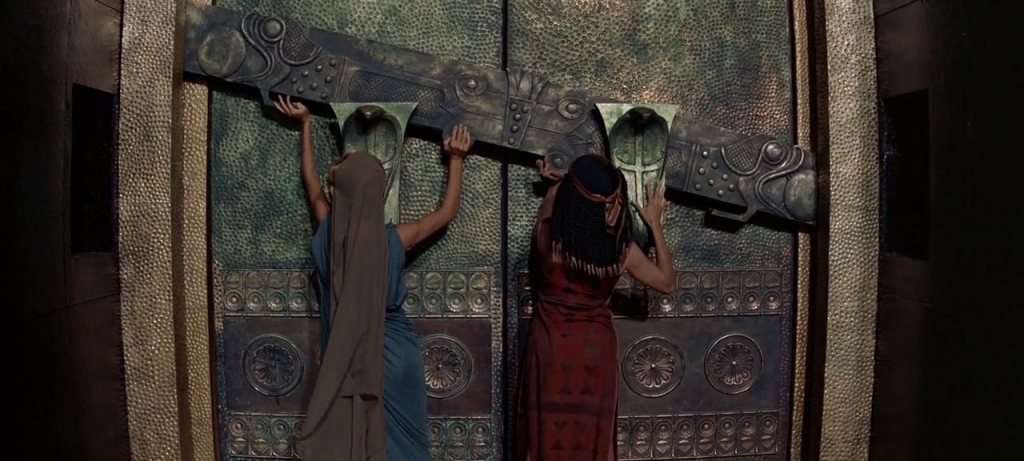
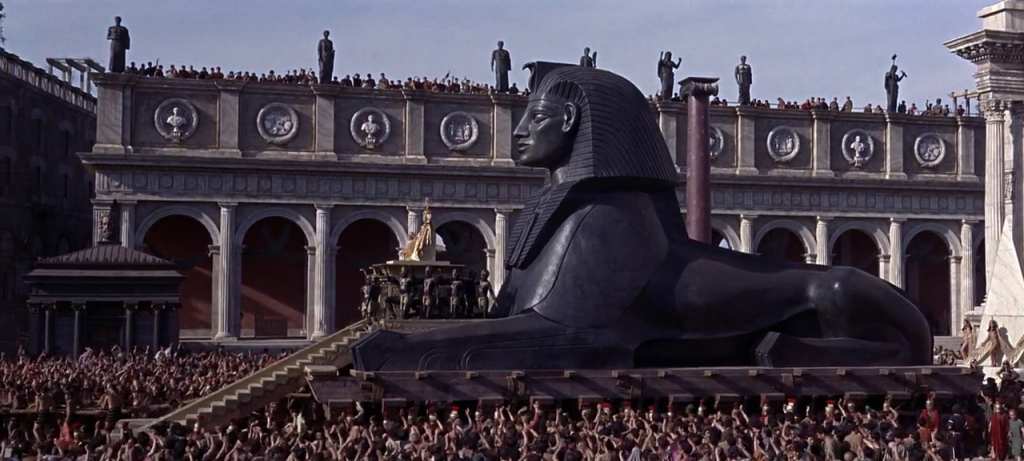
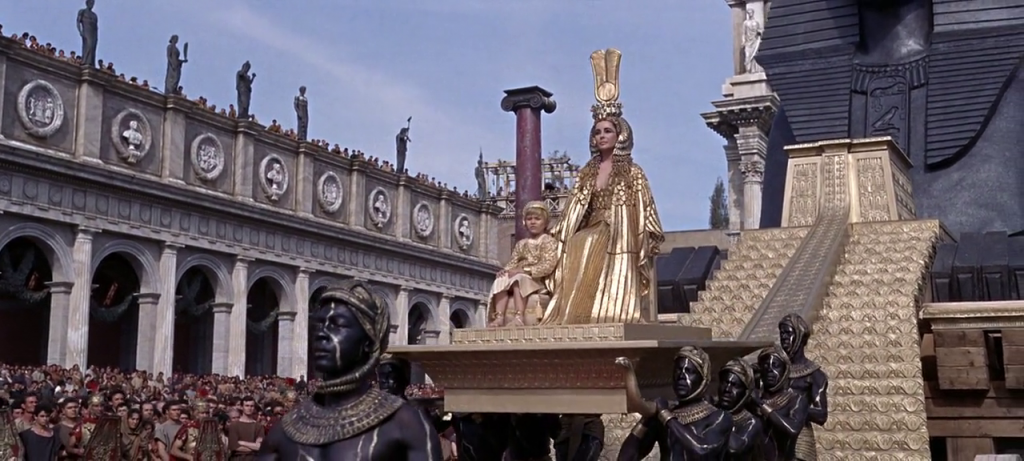
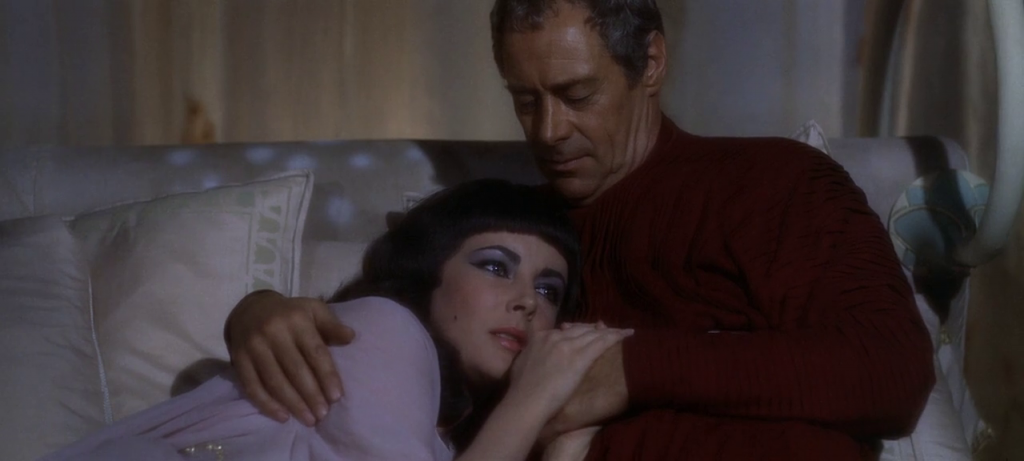
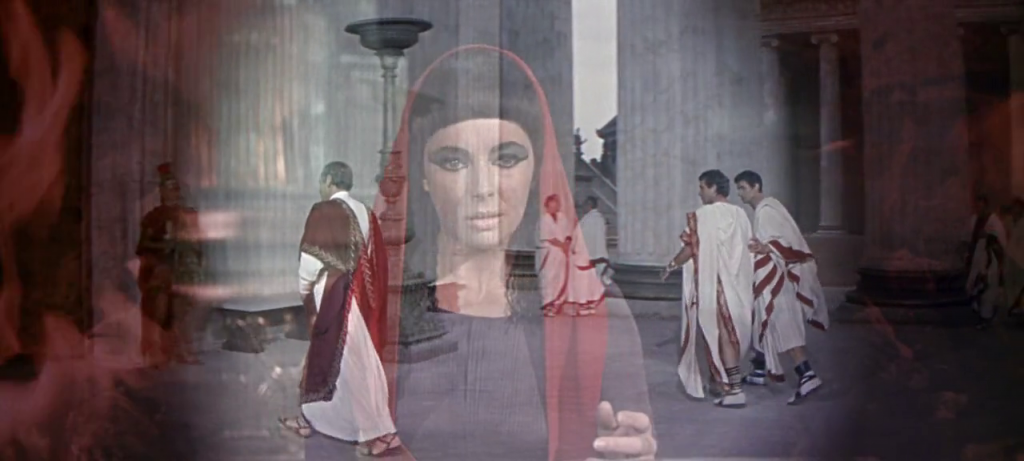
2 thoughts on “Cleopatra (1963)”
⭐️⭐️⭐️
A must see.
An extravagant indulgence that looks great but I much prefer the sexier and more exploitative 1934 film. But, it’s well made and well acted; the perfect Sunday afternoon film.
First viewing (from start to finish). A once-must – for its (notorious) place in cinema history.
Well, at least I was able to get through the whole thing for the first time. I’d tried to watch it a number of times in the past – but, now that I think of it …those screenings were a) not from the beginning but piecemeal and b) not in the proper aspect ratio. I’ve now seen it more closely to the way it was meant to be seen (outside of an actual theater screening).
The DVD has a commentary that is a mix of comments by Martin Landau, Mankiewicz’s sons Chris and Tom (who each served on the film for periods as assistant directors) and publicist Jack Brodsky. By far, the most fascinating comments (and there are lots and lots of them) come from the sons. However, Brodsky (who comes near the end) has much to say about how his work on publicity helped to sell the film at the box office (even though the ‘scandalous’ Burton / Taylor affair had already largely pre-sold the film to a ravenous public foaming at the mouth to see this ‘exhibition’ on-screen; even as a kid, I recall just how much those two were talked about in everyday conversation – and it was a lot).
In fact, the book that Brodsky published with his co-publicist Nathan Weiss (‘The Cleopatra Papers’) is likely to be a much more valuable reference than Wanger’s memoir. It’s mentioned during the commentary (a number of times) that Wanger (at least on this film) was more or less a producer in name only and was hardly around the set at all.
(I would actually recommend that this is one instance in which viewers should probably listen to the commentary before watching the film – as that is likely to increase appreciation immeasurably.)
It is mentioned many many times that it’s unfortunate that no one will ever see the 6-hour film that Mankiewicz actually made – which was, instead, cut down to a little over 4 hours. (The rest of the footage apparently exists in a warehouse in Kansas.) Mankiewicz would go on to call ‘Cleopatra’ his worst film – but he’s clearly referring to the edited version, which (as his sons tell us) “broke his heart”.
As a purely visual experience, ‘Cleopatra’ is marvelous throughout. Stunning, really – so I’ll certainly give it that. But, as a narrative, part one is far superior to part two. In other words, once Harrison is no longer in the film, there is a lot less of a film. (As well, McDowall figuring largely in part two is a frustrating thing indeed; he’s miscast – he was included in the cast at Taylor’s insistence – and his scenery-chewing throws off whatever balance part two has.)
The shift in emphasis to the Cleopatra / Mark Antony love story is simply far less compelling (largely ironic, considering that was what was supposed to bring the crowds into the theater). That’s not completely the fault of Taylor and Burton (although, for my money, Taylor gives the much better performance). The script for part two (aside from the battle segment, which is rather well done) just isn’t as strong. But that’s ultimately not Mankiewicz’s fault either. (Listen to the commentary: *no one* could write a good-enough script – or re-fashion, or whatever the case may be here, under such conditions.)
I don’t really believe the film has any camp value…*except* for one sequence, and it’s a major one: Cleopatra’s entrance into Rome. That extended sequence – even if it has historical accuracy (and it may) – is rather hilarious and, to me, comes off like a Las Vegas floor show. There is absolutely nothing like it, to be sure.
Did I like the film? Ultimately. not that much – though I will say Harrison and Taylor come off very well in part one (which, again, is generally compelling). Visually, it’s an arresting experience absorbing all of the Italian artistry involved …but, as a (truncated) film, it’s a sadly unsatisfying experience.